It has been a long and eventful election season so far in New York, but the primary day has finally arrived. Three of the statewide elections have competitive Democratic primaries, and many state legislative contests have proven to be interesting as well. All eight former members of the now-defunct state Senate Independent Democratic Conference face challengers, and a number of seats in the Assembly are vacant, some with wide open primaries. Here are the races to watch and everything else that will be happening on Election Day.
Statewide Races
Cuomo vs. Nixon
Gov. Andrew Cuomo’s quest for a third term ran into an unexpected obstacle with the candidacy of actress and activist Cynthia Nixon. She has galvanized energy among progressives with her calls for universal rent control, Medicare-for-all and ending corruption. She has railed against Cuomo over the dilapidated conditions in the New York City subway system.
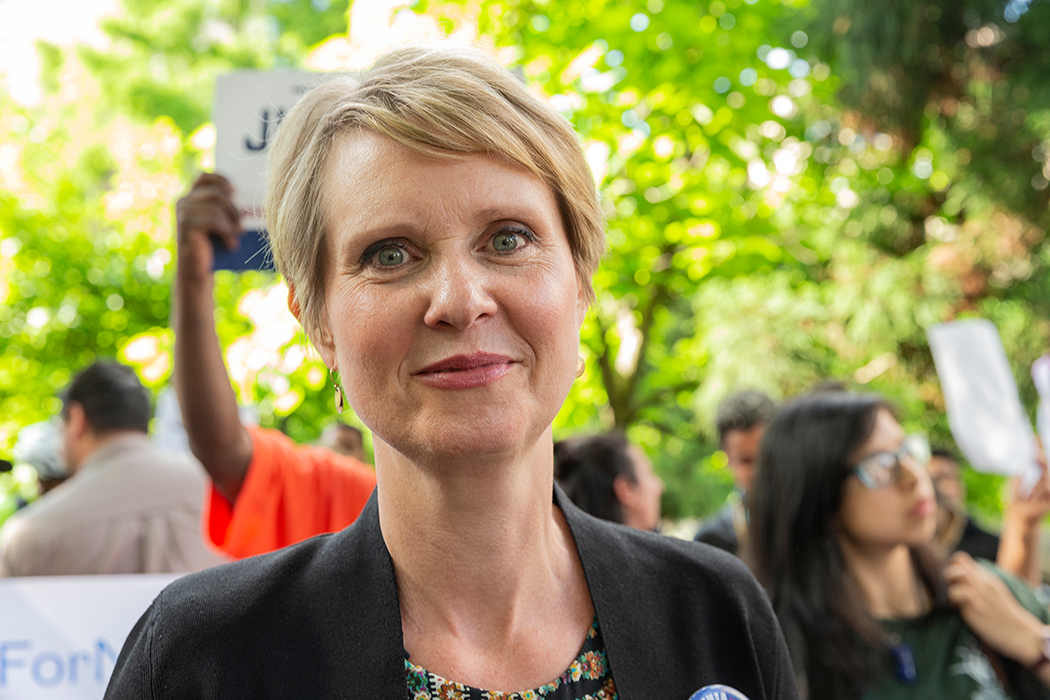
Yet while Cuomo leads Nixon in the polls – the most recent Siena College poll has her down by 41 percentage points – the governor appears to be taking the challenge seriously. He has spent more than $8 million over the last three weeks, according to his most recent financial disclosures, and his aides say that he is taking nothing for granted. But voter complacency could be an issue for Cuomo in the primary if voters think he will win in a landslide. Two controversies in the past week might also dampen voter enthusiasm: the botched opening of the new Governor Mario M. Cuomo Bridge and a mailer to Jewish voters that alleged that Nixon is anti-Semitic, which sparked widespread condemnation from Cuomo supporters and opponents alike. Regardless of the outcome of the race, Nixon appears to have already pushed Cuomo further to the left on issues such as legalizing recreational marijuana, a phenomenon dubbed the “Cynthia Effect.”
Hochul vs. Williams
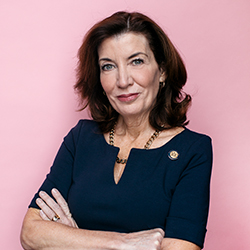
The two candidates have exchanges jabs throughout the campaign, with Williams – who has received endorsements from The New York Times and U.S. Sen. Bernie Sanders – alleging that Hochul has been operating a “very expensive ribbon-cutting office.” Hochul has launched attacks of her own, alleging that Williams lacks the experience to step in as governor if need be and that his personal debt and past opposition to same-sex marriage and abortion should be disqualifying in a Democratic primary.
While some observers have predicted a close race, a Sept. 10 Siena College poll recorded that Hochul has a 22-point lead. While the lieutenant governor candidates run separately in the primary, the winner will share a ballot line with the gubernatorial candidate in the general election.
Maloney vs. James vs. Teachout (vs. Eve)
The four-way Democratic race for state attorney general remains tight and still appears to be very much up for grabs. The latest Siena poll has Rep. Sean Patrick Maloney leading with 25 percent of likely primary voters, followed closely by New York City Public Advocate Letitia James with 24 percent and Zephyr Teachout, a Fordham Law professor, trailing slightly with 18 percent. Leecia Eve finished last with only 3 percent. However, 30 percent of likely primary voters remain undecided.
Little separates the candidates policy-wise, with each running campaigns focused on resisting the administration of President Donald Trump and taking aim at corruption in Albany. James has the support of Cuomo, and her opponents have suggested that she would not be sufficiently independent from the governor. Maloney has received criticism for continuing his reelection campaign for his House seat while also running for state attorney general. Teachout, who has pledged not to accept corporate donations and is arguably running farthest to the left, has come under fire for past statements about New York’s gun laws during her 2016 congressional campaign. And Eve has been criticized for her job as lobbyist for Verizon. Whichever candidate wins the primary is highly expected to win the general election in November against Republican Keith Wofford.
State Senate Races
Klein vs. Biaggi (District 34 – Bronx)
State Sen. Jeff Klein is facing a rare primary challenge this year from lawyer and community activist Alessandra Biaggi. Klein founded the breakaway Independent Democratic Conference in 2011 and served as its leader until the conference disbanded under pressure from Cuomo in April. At the end of 2012, the IDC formed a majority coalition with Republicans that helped keep the GOP in power without an outright majority, and Klein co-led the state Senate. In another potential vulnerability for the incumbent, Klein earlier this year was accused of sexual misconduct by a former staffer.

Alcantara vs. Jackson (District 31 – Manhattan)
Unlike her fellow former IDC members, state Sen. Marisol Alcantara is a freshman legislator and does not have the same incumbency advantage of some of the others. She joined the IDC soon after she won the Democratic primary in 2016, which was a four-way race that included former New York City Councilman Robert Jackson. That primary split very closely three ways – Alcantara took 32.7 percent to win, Upper West Side lawyer Micah Lasher received 31.57 percent and Jackson came in third with 30.65 percent. This year’s primary is a four-way contest once again, but the other two candidates, Thomas Leon and Tirso Santiago Pina, have been all but non-existent so far – Leon has not filed a financial disclosure report and Pina has only raised about $3,000. Additionally, Lasher is not running this year and endorsed Jackson early in his campaign. A big question now is if the voters that turned out for Lasher in 2016 will support Jackson this year.
Peralta vs. Ramos (District 13 – Queens)
Although a long-time incumbent, state Sen. Jose Peralta had the shortest stint with the IDC, having joined in January 2017. He faced perhaps the most backlash for the decision among the former IDC members, when members of the his community held an angry town hall in February to express their displeasure with his decision. Peralta has defended his decision by saying that by joining the IDC, he was getting much needed resources for his district.
Jessica Ramos, a former aide to New York City Mayor Bill de Blasio, was one of the people at the February town hall and is now looking to capitalize on the new political engagement to defeat Peralta. The district overlaps with the congressional district that Ocasio-Cortez won when she defeated the powerful Queens kingmaker Rep. Joseph Crowley in an upset victory. While the two races are not exactly alike, Ocasio-Cortez’s win may help bolster Ramos’ efforts and could have served as a sort of litmus test for which way voters will swing on Thursday.
Hamilton vs. Myrie (District 20 – Brooklyn)
State Sen. Jesse Hamilton is another former IDC member whose time with the conference was short – he joined in November 2016, shortly before the general election. He is also not entrenched yet, having been elected only in 2014.
Lawyer and housing activist Zellnor Myrie entered the race because he felt Hamilton, who has received criticism for being too close to real estate interests, had not been doing enough to address the housing crisis in Central Brooklyn. Myrie, like the other IDC challengers, has been running as a “real Democrat” and has pledged to support a Democratic majority if elected. Hamilton has been endorsed by Brooklyn Borough President Eric Adams, one of the main power players in the borough, while Myrie has been backed by Rep. Hakeem Jeffries, the other political powerhouse. Myrie has also gained the support of the entire Brooklyn congressional delegation, other local elected officials in and around the district, The New York Times and several powerful unions. Recently, emails went out attacking Myrie as being anti-black, raising questions about illegal electioneering. The emails appeared to be funded by a Brooklyn nonprofit with close ties to Hamilton, though the state senator denies any involvement.
Avella vs. Liu (District 11 – Queens)
State Sen. Tony Avella was first elected in 2010, when he defeated Republican incumbent Frank Padavan. He joined the IDC in 2014, the same year that former New York City Comptroller John Liu first ran against him. At the time, Democrats wanted to get rid of Avella because of his decision to join the breakaway conference. However, the IDC promised to return to the fold after the election. Whether or not that ultimately impacted the 2014 election would be hard to prove, but Liu lost that contest by six points. In the general election, Republicans won an outright majority in the state Senate and the IDC continued to ally with the GOP. This year may be different for Liu considering shifting political attitudes since Trump got elected. The knowledge of and desire to defeat the IDC is stronger than in 2014, which is what Democrats are banking on when they recruited Liu late in the game.
The other IDC challengers
The three other former IDC members are also facing primary challenges, although the campaigns of those candidates have not appeared to be as strong as the other five. State Sen. Diane Savino in Staten Island is facing challengers Jasmine Robinson, who has been endorsed by anti-IDC groups, and Brandon Stradford. Robinson at one point asked to be taken off the ballot when she learned some of her petition signatures were fraudulent, but quickly changed her mind. Upstate, state Sen. David Carlucci is facing a challenger from Julie Goldberg, a librarian, while Rachel May, a teacher and community activist, is taking on state Sen. David Valesky.
Felder vs. Morris (District 17 – Brooklyn)
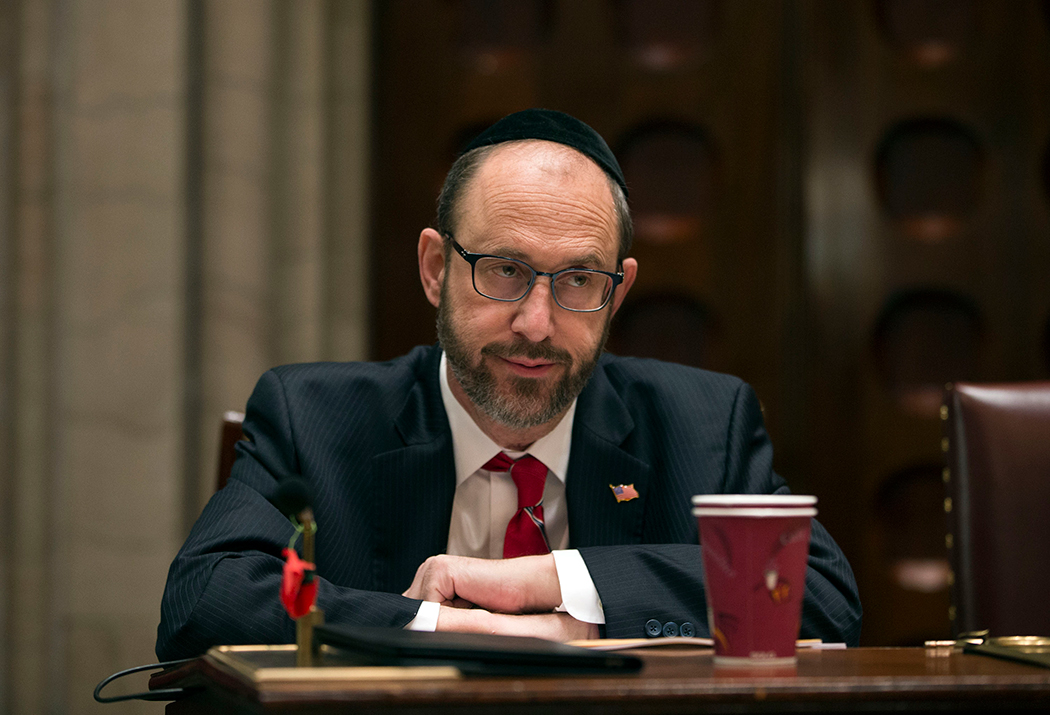
Dilan vs. Salazar (District 18 – Brooklyn)
This unexpectedly high-profile state Senate race pits socialist Julia Salazar against eight-term state Sen. Martin Dilan to represent the 18th District. Salazar has galvanized support among progressives for her identification as a democratic socialist who wants to empower unions and immigrants while instituting universal rent control and single-payer health care.
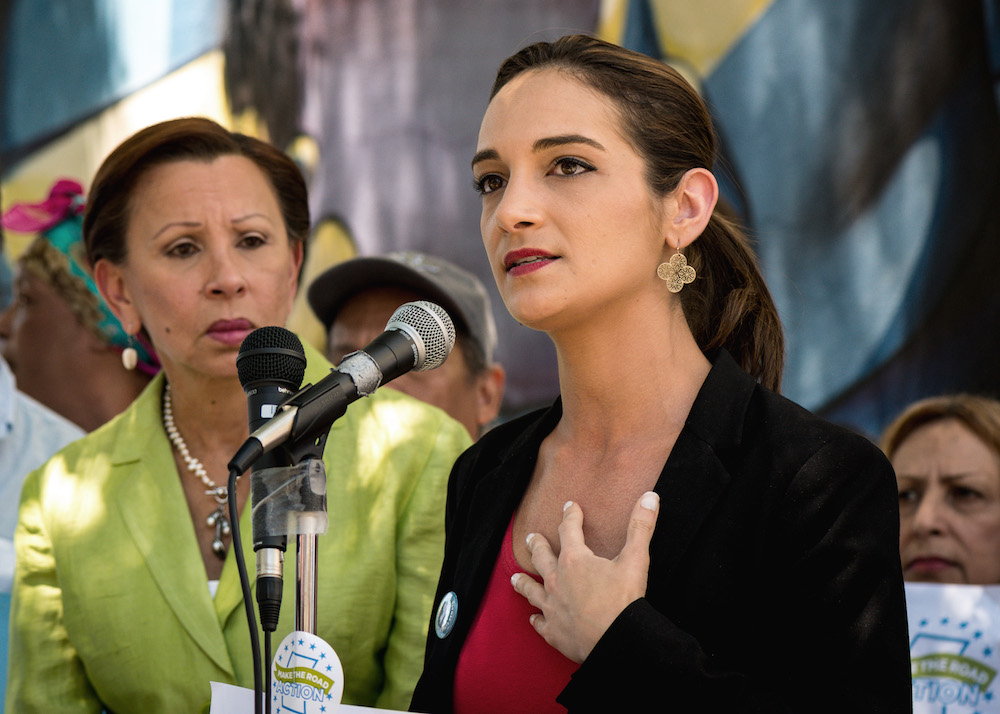
Barkan vs. Gounardes (District 22 – Brooklyn)

Metzger vs. Malick (District 42 – Delaware, Orange, Sullivan and Ulster counties)
With the retirement of state Sen. John Bonacic, the Hudson Valley seat is now open. It should still be fairly safely Republican, but in the absence of an incumbent, it is in play in a way that it had not been before. Environmental activist Pramilla Malick is making her second attempt to win the mid-Hudson Valley district after losing to Bonacic in 2016 by more than 20 points. But first she has to beat Rosendale councilwoman Jennifer Metzger, who has received more establishment support, as well as the backing of Teachout, NYSUT and the Working Families Party. The state Board of Elections recently rejected Malick’s attempt to appear on the November ballot as an independent. The pair do not differ much when it comes to policy. The race appears to be a toss-up, with the winner facing Republican candidate Ann Rabbitt in November.
Assembly races
Jack Vobis Jr. vs. Juan Vides (District 20 – Nassau County)
Two Democrats – lawyer and former court officer Jack Vobis Jr. and businessman Juan Vides – are vying for the chance to take on freshman Republican Assemblywoman Melissa Miller. She won a close race in 2016 by only five points to replace former Assemblyman Todd Kaminsky, who left his seat for a successful state Senate run, which could mean the seat will be competitive in November. Vobis received the endorsement of the Nassau County Democratic Committee, though still faces a contested primary from Vides.
Brian Barnwell vs. Melissa Sklarz (District 30 – Queens)
This race pits freshman Assemblyman Brian Barnwell against activist Melissa Sklarz, who became the first transgender office holder in the state when she was elected as a judicial delegate in 1999. She would be the first transgender member of the Assembly is she wins and has gained some momentum in her bid to unseat Barnwell by securing the endorsements of New York City Council members Jimmy Van Bramer and Daniel Dromm. But Barnwell is no stranger to upsets, having pulled off one of his own in 2016 when he beat longtime Assemblywoman Margaret Markey. The winner faces Republican Eric Butkiewicz in the general election.
Ari Espinal vs. Catalina Cruz (District 39 – Queens)
Assemblywoman Ari Espinal only won her seat in April in a special election and is already facing a reelection challenge from former New York City Council and Cuomo staffer Catalina Cruz. Espinal replaced her mentor, New York City Councilman Francisco Moya, when he left his seat to join the City Council. She has a long history of community organizing, beginning when she was 13, which she believes makes her the best person for the job.
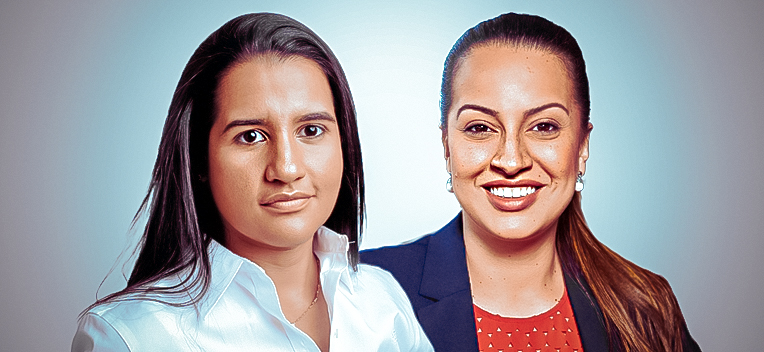
Jonathan Jacobson vs. Ralph Coates vs. Alexander Reed Kelly vs. Kevindaryan Lujan vs. Jodi McCredo (District 104 – Dutchess, Ulster and Orange counties)
This five-way Democratic primary aims to find a replacement for the late Assemblyman Frank Skartados, who had held the seat from 2009 until he died of cancer in April. All five of the candidates have political experience at the local level, and largely agree on the issues. At at least one forum, they seemed to be in a race to outdo each other, as was the case when Kelly stated that a $20 minimum wage was better than $15. Whoever stands out from the pack enough to win will face Republican candidate Scott Manley. Skartados won reelection in a landslide in 2016.
Jamie Romeo vs. Jaclyn Richard vs. Todd Grady (District 136 – Monroe County)
Assemblyman Joseph Morelle, the deputy majority leader, announced earlier this year that he would not seek reelection in order to run for the congressional seat once held by Rep. Louise Slaughter, who died in February. Morelle has held the seat for 28 years and although Republicans nominated Jim Schafer to run in November, he declined the nomination, meaning the winner of this primary will almost certainly be headed to Albany. Running to replace Morelle are Jacklyn Richard, vice president of the Rochester National Organization for Women, Jamie Romeo, chairwoman of the Monroe County Democratic Committee, and Todd Grady, who works in real estate. Romeo appears to be the frontrunner with the support of Morelle. She has also outspent her opponents and will also appear on the Working Families Party and Independence Party lines in November.
Other Democratic members of the Assembly who are facing primary challenges: Earlene Hooper,Clyde Vanel, Rodneyse Bichotte, Maritza Davila, Charles Barron, Robert Rodriguez, Daniel O’Donnell, Alfred Taylor, Carmen De La Rosa, Harvey Epstein, Carmen Arroyo, William Magee, David Gantt.
Other open Democratic Assembly primaries: Ethan Lustig-Elgrably vs. Mathylde Frontus; Bobby Olisa vs. Patricia Kane vs. Charles Fall; Karines Reyes vs. John Perez vs. Farah Despeignes; Don Boyajian vs. Tistrya Houghtling; Randy Reid vs. Bill Batrowny.
Other Republican members of the Assembly who are facing primary challenges: Anthony Palumbo, John Mikulin, Clifford Crouch, Joe Errigo, Erik Bohen.
Open Republican Assembly primaries: Michael Reilly Jr. vs. Glenn Yost vs. Ashley Zanatta; Patrick Vincent vs. Robert Smullen; Dennis Bova Jr. vs. Frederick Nichols.
Democratic members of the state Senate facing primary challenges: Andrea Stewart-Cousins, Timothy Kennedy.
Open Democratic primaries: Robert Keston vs. Harckham; Amanda Kirchgessner vs. Michael Lausell
Open Republican state Senate primary: Thomas Sullivan vs. Slawomir Platta.
NEXT STORY: Zephyr Teachout’s declaration of independence


